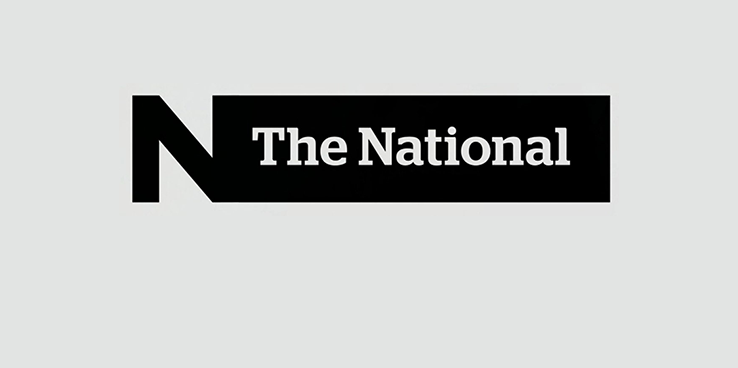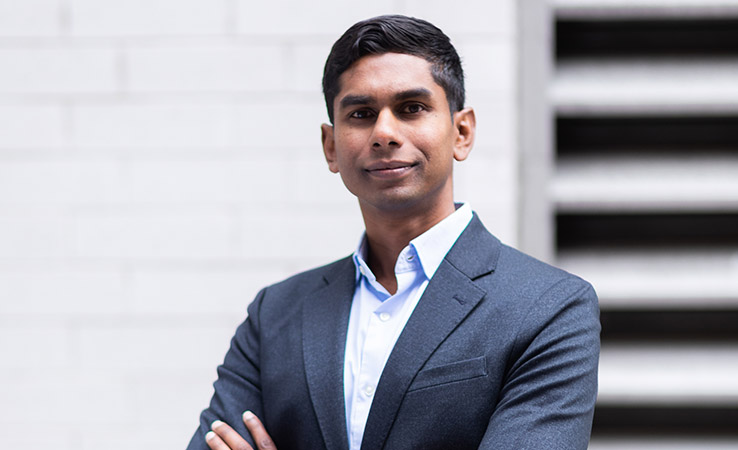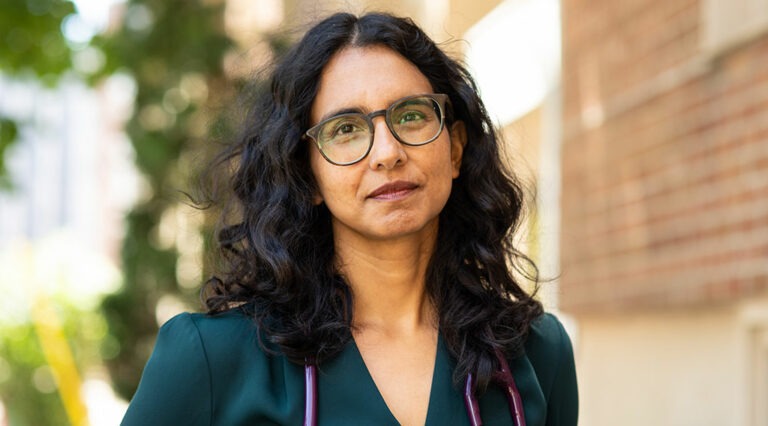Canada’s COVID-19 vaccine rollout has gotten off to a sluggish start, but there could be lessons to learn from countries such as Israel, which has vaccination clinics operating around the clock. MAP’s Dr. Tara Kiran was on CBC The National to discuss what we can learn from countries like Israel that have vaccination clinics running around the clock.
Month: January 2021
‘It leads to mistrust’: Experts weigh in on Ontario’s COVID-19 communications
Confusing. Contradictory. Convoluted. Communications and public-health experts say that the Tories’ strategies have largely been a failure — but that there’s a chance to change course
From the TVO article:
…Farah Mawani, a social and psychiatric epidemiologist with the hospital network Unity Health Toronto, says that the government would have benefitted from not just releasing a policy but also communicating “what can prevent us from moving in the more dangerous stages of the plan — how can we stay in Stage 1, assuming we can.”
…Mawani says the government could also choose to adopt a community-based and trauma-informed approach. That could mean doing more consultations with community leaders to keep the message in line with the reality on the ground — and communicating in a way that “recognizes that we are experiencing a collective trauma.”
“If you’re communicating as if you’re all in this together and you’re actually working together, that has a different tone than if you’re communicating an order to people to do things,” Mawani says. “The type and tone of communication that takes into account the trauma and impact on various different communities looks very different to what we’ve seen so far.”
Vaccine rollout to homeless people in Toronto’s shelters put on hold due to supply shortage
A pilot project that aimed to vaccinate homeless people in Toronto’s shelters has been put on hold due to a vaccine shortage, local officials said Wednesday.
The rollout of the vaccine to the city’s 100 shelters was paused because of a shortage of the vaccine from Pfizer-BioNTech, which announced last week it would delay the delivery of the COVID-19 vaccines to Canada due to production issues.
Dr. Stephen Hwang of St. Michael’s Hospital, which is helping run the project with the city and several other organizations, said 55 residents and 30 staff at Scarborough Village Residence, a city-run shelter in the east end, got their first dose on Friday.
“It was, overall, a resounding success,” said Hwang, a physician and research scientist who works with the homeless.
“We’re pleased that it’s actually rolling out because it really should be a high priority to get people who are experiencing homelessness vaccinated.”
“It’s something that we do have to work on and certainly for people experiencing homelessness a degree of skepticism or mistrust of the health-care system is probably a bit higher than in the general population,” Hwang said.
Vaccinations at a shelter for Indigenous men was also paused as was the plan to vaccinate those living at the downtown Strathcona Hotel, where many of the city’s homeless moved to after living in encampments much of the year.
Hwang said he was hopeful the vaccines would only be delayed by a few weeks.
He said the team, which includes the Inner City Health Associates, a group of 100 physicians who work at shelters and drop-ins across the city, would analyze the progress of the pilot and fine-tune it before it’s rolled out to the rest of the shelters.
“The goal is to develop a playbook so that we can have a plan that we can go out to immunize people in shelters across the city,” he said.
Workplaces were source of 25% of Manitoba’s COVID-19 community-linked cases last fall
Retail stores, health-care facilities among top community sources for 6-week period, provincial data shows
From the CBC News article:
…Toronto social epidemiologist Dr. Farah Mawani said other factors may have been at play in the high number of workplace-related cases.
“If people are in precarious positions — where they don’t have a commitment to a longer contract, their income is low, they have limited benefits … they’re in a position where they don’t have the power to challenge lack of safety in the workplace,” she said.
“They don’t have the power to choose to stay at home if they’re sick or if a member of their household is sick.”
She said it’s important to look at some of the systemic factors that might prevent someone from working from home.
“One thing that we do know globally, and certainly in Canada, [is] a very high proportion of people working in precarious employment conditions are our racialized people. And many of them are also immigrants who are underemployed.”
Montreal, Toronto launch pilot project to vaccinate homeless people
Montreal and Toronto have launched pilot projects to start vaccinating people who are homeless against COVID-19. MAP Director Dr. Stephen Hwang told CBC The National that officials have several challenges to overcome, including a lack of trust in the health system.
The untold story of four Indigenous skulls given away by one of Canada’s most famous doctors, and the quest to bring them home
From the Toronto Star article:
…It was Osler, according to a journal article co-authored by Toronto doctor Nav Persaud, who wrote, “I hate Latin Americans.” In a speech, Osler said, “What are we to do when the yellow and brown men begin to swarm over” to Canada, which he considered “a White man’s country.”
Osler defenders criticized the article, saying it nitpicked some ill-chosen words made in private and ignored Osler’s noble actions.
Persaud’s article, which argues that medical school lectures lionize Osler and whitewash his legacy, also briefly mentioned the four Indigenous skulls Osler gave to Virchow.
Persaud, raised near Keele Street and Wilson Avenue and educated at the University of Toronto and as a Rhodes Scholar at Oxford University, has a laser-guided conscience.
While a medical student at U of T, he asked for a meeting with professors to point out that a pain management course included a book provided free to students and that was paid for by Purdue Pharma, maker of OxyContin. His approach was spurned as impertinent. He persisted. Eventually U of T dropped the book and a lecturer with financial ties to Purdue, then the university strengthened its conflict-of-interest guidelines.
Persaud first heard of the skulls in 2018 from Dr. Philip Berger, a mentor whom Persaud trained under at St. Michael’s Hospital.
A semi-retired physician, Berger, recently sat on the governing council of Ontario’s doctor regulator, the College of Physicians and Surgeons.
He is also a troublemaker. He occupied politicians’ offices and marched in protests to fight for healthcare for refugees. He once yelled “Go back to Ottawa!” to a federal cabinet minister making a speech on stage in Nathan Phillips Square. As he was led away by security, an incredulous journalist asked him and his colleagues, “Are you real doctors?”
When he heard from a Israeli colleague about Osler’s gift to Virchow, Berger recalls thinking: “William Osler is a deity in medicine. He is an icon of heroic proportions in Canada. Osler was viewed as a humanitarian, and humanitarians don’t go giving skulls as gift to a colleague.”
Berger told Persaud he wanted to find the remains. He wanted to know how the skulls were taken from their original resting ground. And who took them. And did they ask permission.
This article was Part 1 of a series. Read Part 2: When the dead come to you, you pay attention:’ Inside the quest to bring home four Indigenous skulls taken to Europe more than a century ago
Breaking down walls: Teamwork key to effective vaccine rollout
By Tara Kiran, Jeff Kwong, and Noah Ivers
Since Canada approved our first COVID-19 vaccine, our attention has been focused on ensuring adequate vaccine supply, figuring out distribution and storage and deciding who gets it first. There’s been little discussion, though, about who will be giving the vaccine and where.
This fall’s flu shot campaign offers important lessons. Flu immunization was more important than ever because of COVID-19 but there were still needless hiccups in execution – worry and confusion about the supply, lack of clarity on whether to prioritize those at highest risk and, at times, finger pointing instead of collaboration.
But we have the opportunity to learn from our past. Key to the vaccine rollout’s success will be exceptional collaboration between primary care teams, community pharmacists and public health units – the three sectors that deliver the majority of vaccines in Canada.
Each sector plays a unique role. Family doctors and their teams have longstanding relationships with patients. These relationships are built on foundations of trust from which we can relay scientific information and directly address patients’ fears – from missing out on the vaccine to adverse effects. We can also use our records to identify priority groups and proactively reach out to them.
Bringing a COVID-19 vaccine to Black and Indigenous communities distrustful of the health system has unique challenges. Here are some places to start
From the Toronto Star article:
…LaRon Nelson agrees. The public health nurse and scientist at St. Michael’s Hospital’s MAP Centre for Urban Health Solutions researches ways to reduce health disparities in Black communities. The government’s message is in their method, he said. “The message is how you treat me.”
Nelson described the skepticism toward a vaccine among Black people as a “healthy response to histories of mistreatment that Black communities have experienced at the hand of health-care systems and governments.”
It’s not because Black people are mistrustful, he said. “It’s because this system that is harming you is now saying we’re going to give you something that benefits you, and who can trust that?”
Addressing that lack of trust is “less on the people who have been subject to these systems and more on our leaders and policy-makers and administrators to change the system so that it better serves Black folks.” That will take time, he said. For now, given the urgency of the pending immunization program, Nelson echoed the advice of other experts that partnering with trusted community organizations will be key, along with providing information in a transparent and non-judgmental way.
“My goal wouldn’t be to push the vaccine,” he said. “My goal would be to inform. Even the questions that seem bizarre, they have to all be taken seriously and all be answered seriously.”
This work has to start now, he said. “Like, yesterday.”




